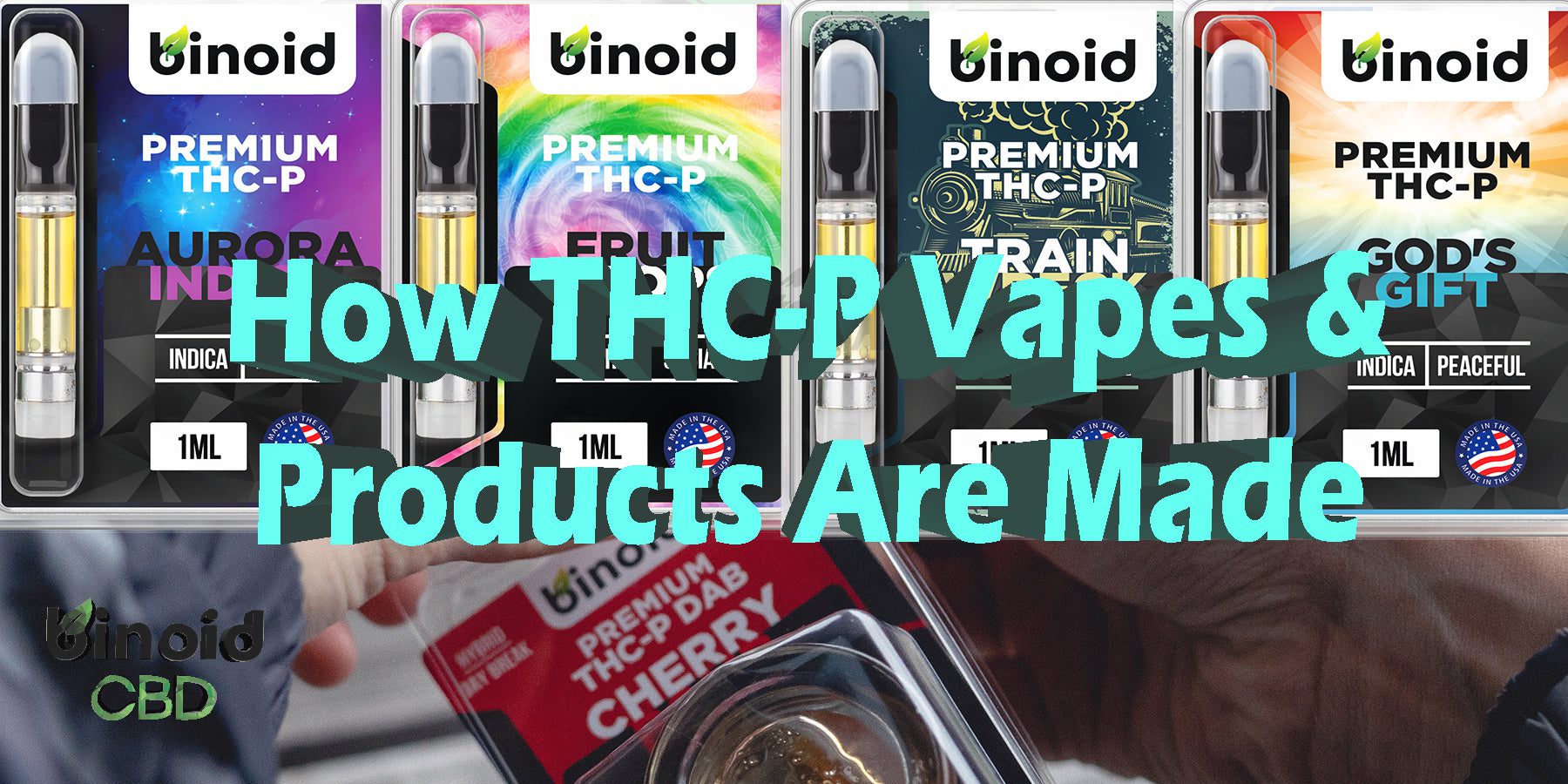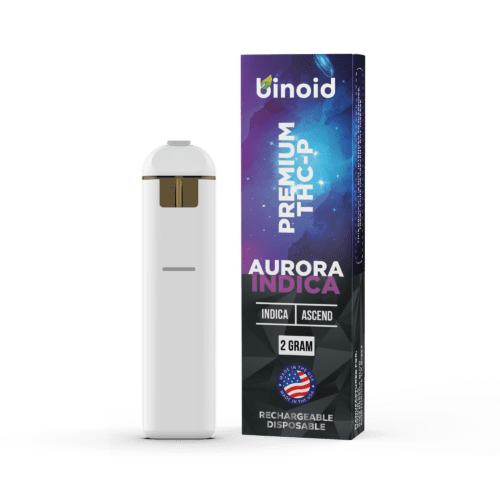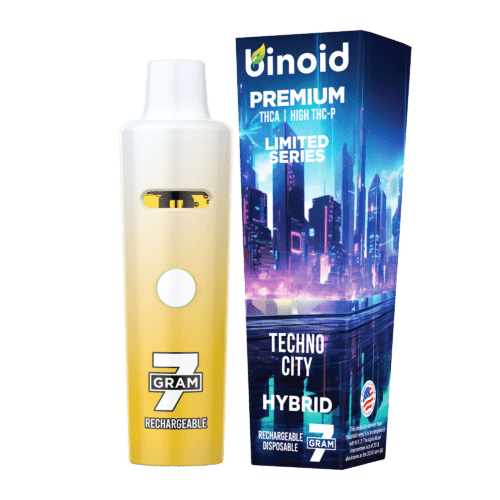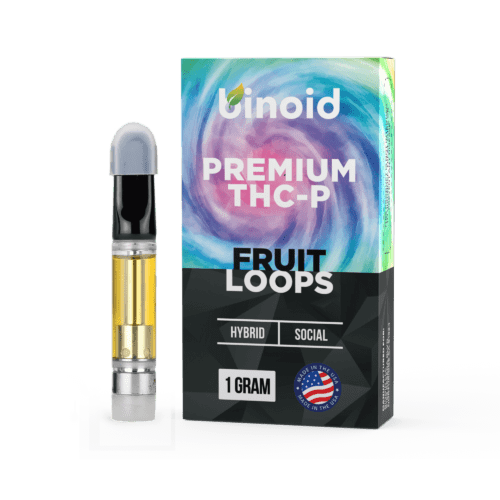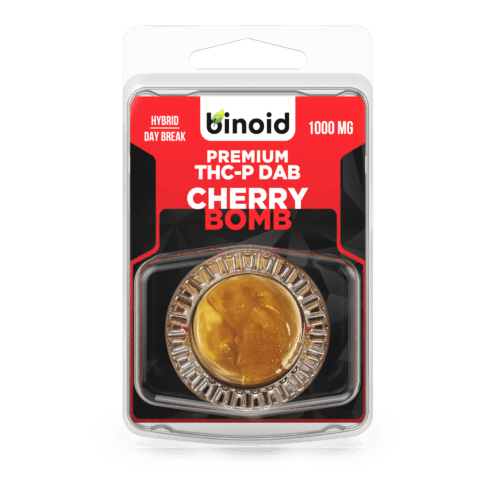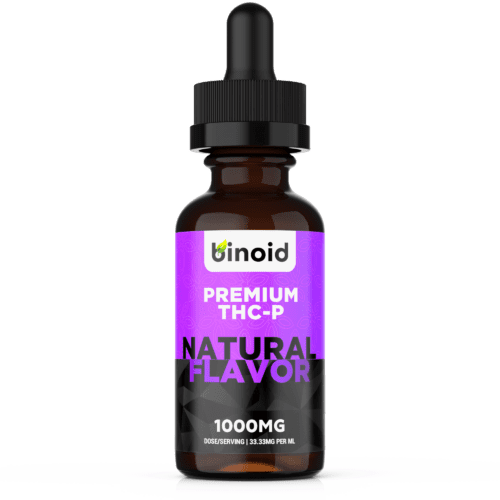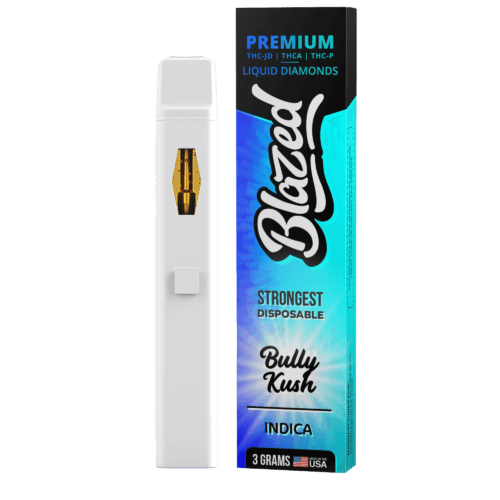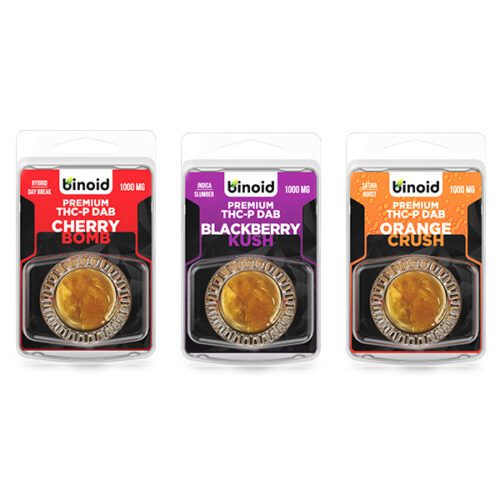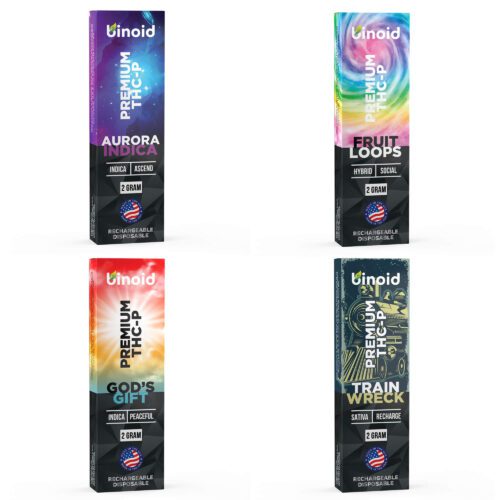Tetrahydrocannabiphorol (THC-P) is known for being the most psychoactive cannabinoid in all of the hemp plant. About 10x as intoxicating as delta 9 THC, it’s easy to see why so many Binoid customers can’t get enough of its effects. Being such a minor cannabinoid in the hemp plant, it’s quite hard to source from raw plant material since it exists in only the faintest of trace levels.
Basically, tetrahydrocannabiphorol (THC-P) is a naturally occurring cannabinoid in cannabis, meaning that it has always been there, and we just never knew about it. It’s not a synthesized cannabinoid like THC-O-acetate, making THC-P completely organic. In fact, technology has advanced to the point of offering a way to produce clean, pure, and potent THC-P products that is as cost-effective as it is incredibly reliable.
To Buy THC-P Products Click Here
A Quick THC-P History Lesson
It wasn’t until December 30th, 2019, that tetrahydrocannabiphorol (THC-P) was brought to hemp world, when a group of Italian researchers stumbled upon it while researching hemp.
THC-P discovery was an accident, and the result of the Italian research team applying mass-spectrometry and liquid chromatography techniques to a sample of hemp. These two techniques are used for biological analysis, to better separate individual compounds so that they can be examined in a more precise and isolated way. Thus, allowing cannabinoids to isolate so that their individual properties and characteristics can be explored.
Once these processes were applied to the sample, tetrahydrocannabiphorol (THCP) emerged, and so the team decided to analyze it more closely to understand its properties.
Making THC-P Starts with Industrial Hemp
All THC-P products on today’s market start with the industrial hemp plant, which should ideally be grown using organic methods to ensure that it’s free of pesticides, and also grown here in the United States because of our strict agricultural standards. Tetrahydrocannabiphorol is naturally found in the buds of the hemp plant, which are picked at peak maturity to prepare for extraction.
Tetrahydrocannabiphorol is a phenomenally trace cannabinoid, meaning that it exists in the plant material in extremely low levels.
Creating THC-P Distillate
Like we said, tetrahydrocannabiphorol (THCP) is a very trace cannabinoid, which is found in less than 1% of the plant’s entire chemical composition. To produce a good amount of THC-P extract – enough to formulate a product – companies would have to go through a ton of hemp material, which would be both expensive and time-consuming. Thankfully, there’s a process known as isomerization which yields the ideal purity level of authentic THC-P.
Isomers are chemical compounds that have the same molecular components, but a unique configuration of those molecules. All cannabinoids are isomers of one another, because they are all derived from the “mother cannabinoid”, cannabigerolic acid (CBGA), which’s in the plant pre-maturity, and eventually converts into every other cannabinoid. This means that we can take cannabidiol (CBD), since this is far more abundant in the hemp plant, and then rearrange its molecules to turn it into genuine THC-P.
Isomerization is actually how we produce all cannabinoid-based products in which a cannabinoid other than CBD is the active ingredient. And, the process is pretty much the same for all cannabinoids. This is how it’s done:
- Applying a Solvent: The first step is applying a solvent to the raw hemp material, to create a pure CBD extract.
- Add an Acid: Next, an acid must be added, and the acid is carefully chosen, because different acids rearrange the molecules in CBD in different ways. Certain acids change the molecules in CBD around to convert the cannabinoid into THC-P.
- Test the End Result: Lastly, liquid chromatography is used to analyze the resulting extract, which allows processors to confirm that what they have on their hands is pure, genuine tetrahydrocannabiphorol.
Without a doubt, isomerization is the most efficient way to get a pure THCP extract. But, some companies still rely on more traditional extraction methods, despite the far more time-consuming and costly nature of it.
Distillation is a process for purifying a specific compound in hemp. Each compound evaporates when exposed to distilled steam at a specific temperature and pressure level. Varying levels of steam then, are applied to the raw plant, with each compound evaporating one by one until what remains is pure THC-P.
How THC-P Carts and Products Are Made
Now, we can use this THC-P distillate to produce any kind of product we’d like, by combining that THC-P with other ingredients.
Here is how the most common types of THC-P products are made:
- THC-P Flower: THC-P flower takes raw hemp flower buds and infuses them with this pure THC-P extract.
- THC-P Vapes: The vape oil found in both disposable devices and vape carts should contain just pure THC-P extract and terpene extracts, which come from either hemp or other botanical materials.
- THC-P Tinctures: THC-P tinctures take THC-P extract and dilute it in a specific concentration using a carrier oil, such as MCT oil.
- THC-P Edibles & Gummies: THC-P edibles are produced by combining tetrahydrocannabiphorol with any number of ingredients to create gummies and other tasty treats.
- THC-P Concentrates/Dabs: THC-P concentrates can include pure tetrahydrocannabiphorol distillate, or come in the form of wax, shatter and other solvent-based concentrates which involve applying a solvent to the hemp material to concentrate its compounds before adding a significant amount of pure tetrahydrocannabiphorol.
Lab-Testing Through a Third-Party Source
Now, it’s time to have the tetrahydrocannabiphorol (THC-P) tested by a third-party laboratory that is licensed by the state to analyze hemp. This is a required process for any company that sells hemp products. A sample is sent to the laboratory, where it’s analyzed for its breakdown of chemical compounds, its federal compliance, potency and purity levels. Then, the sample is returned to the company, along with the lab reports which are then shared with the public.
THCP Product Packaging
Finally, the product is ready to be packaged and sold. THC-P products must be packaged in an airtight seal, which keeps the hemp fresh so that it remains both potent and flavorful. The packaging must also describe the ingredients, directions for use, serving size and, if applicable, the product’s milligram strength.
THC-P: A Trace Cannabinoid Turned into a Thriving Hemp Submarket
As you can see, making THC-P isn’t just a matter of isolating the tetrahydrocannabiphorol cannabinoid and extracting it out of the hemp plant. It relies on a fascinating process that’s made possible by the incredible similarities between all cannabinoids. At Binoid, we produce our THC-P products using all of the above techniques, allowing us to ensure a pure, federally compliant and extremely bioavailable product for our customers to enjoy.

